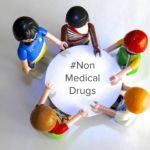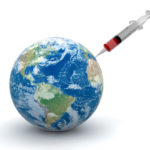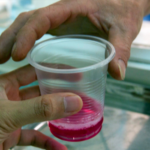A drug is a chemical substance that acts on the brain and nervous system, changing a person’s mood, emotion or state of consciousness. Drugs are often classified by the effect they have.
Stimulants, such as cocaine, make people feel full of energy. Depressants (or sedatives), such as heroin, make people feel relaxed. Hallucinogens, such as LSD, make people see, feel or hear things that are not real. Drug or substance misuse is when a person regularly takes one or more drugs to change their mood, emotion or state of consciousness.
What do we know about women, cannabis and psychosis?

Ian Hamilton and Suzi Gage explain why we know so little about the relationship between cannabis and severe mental illness in women.
[read the full story...]










